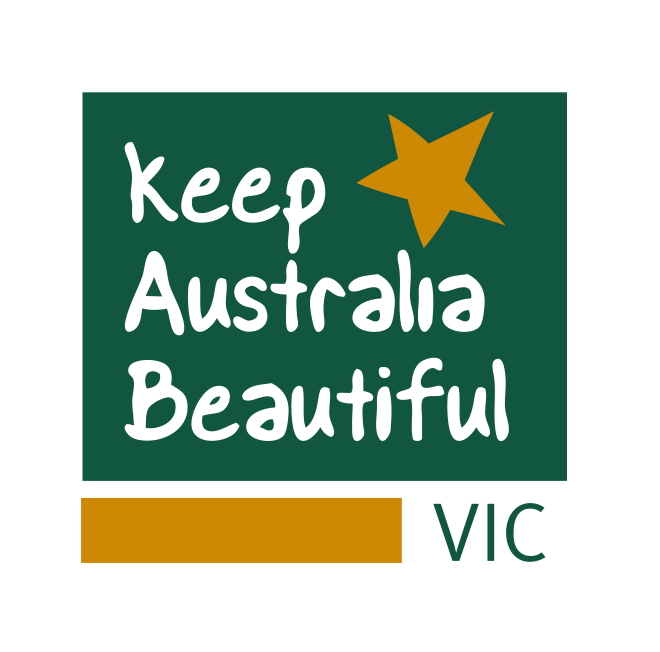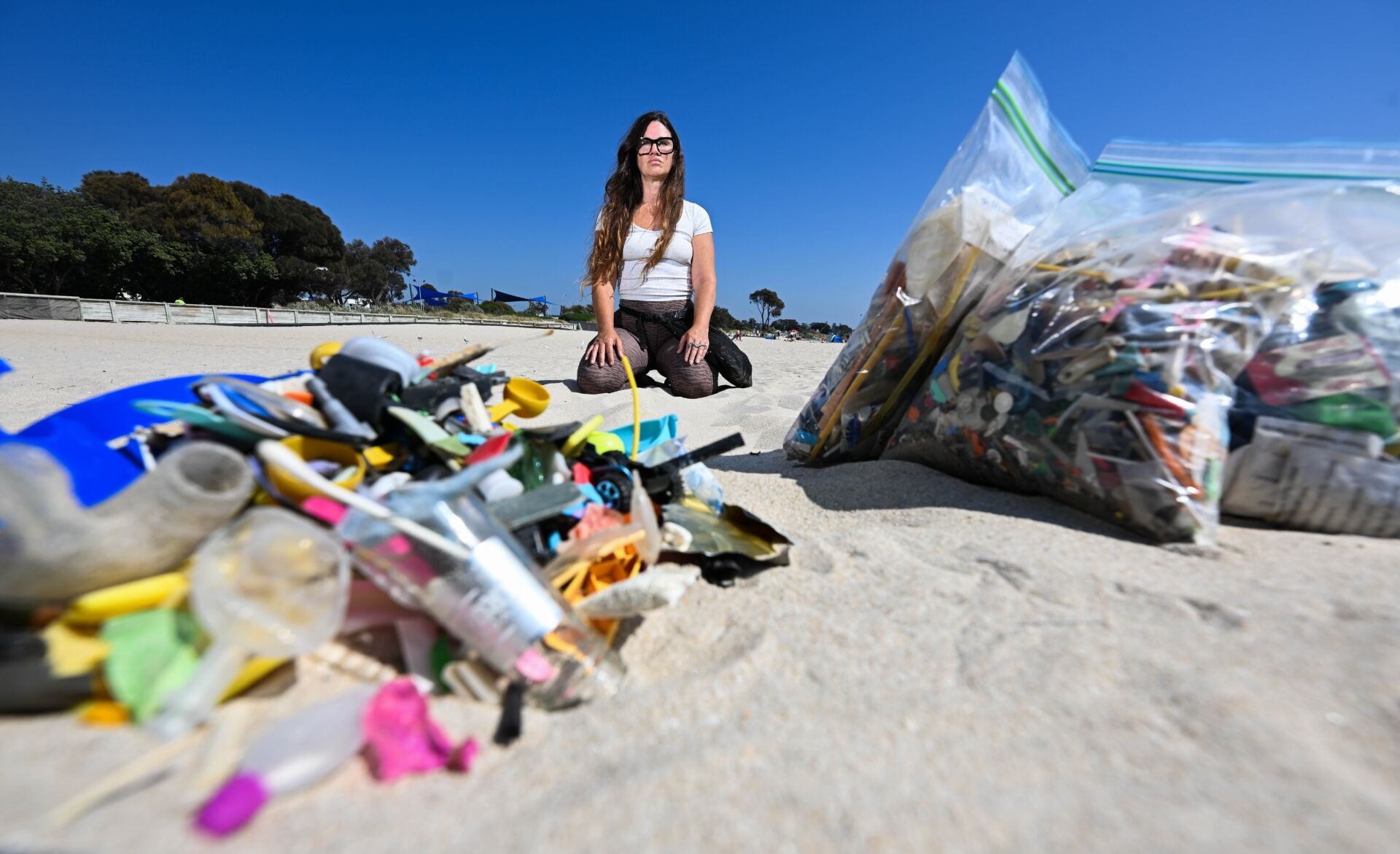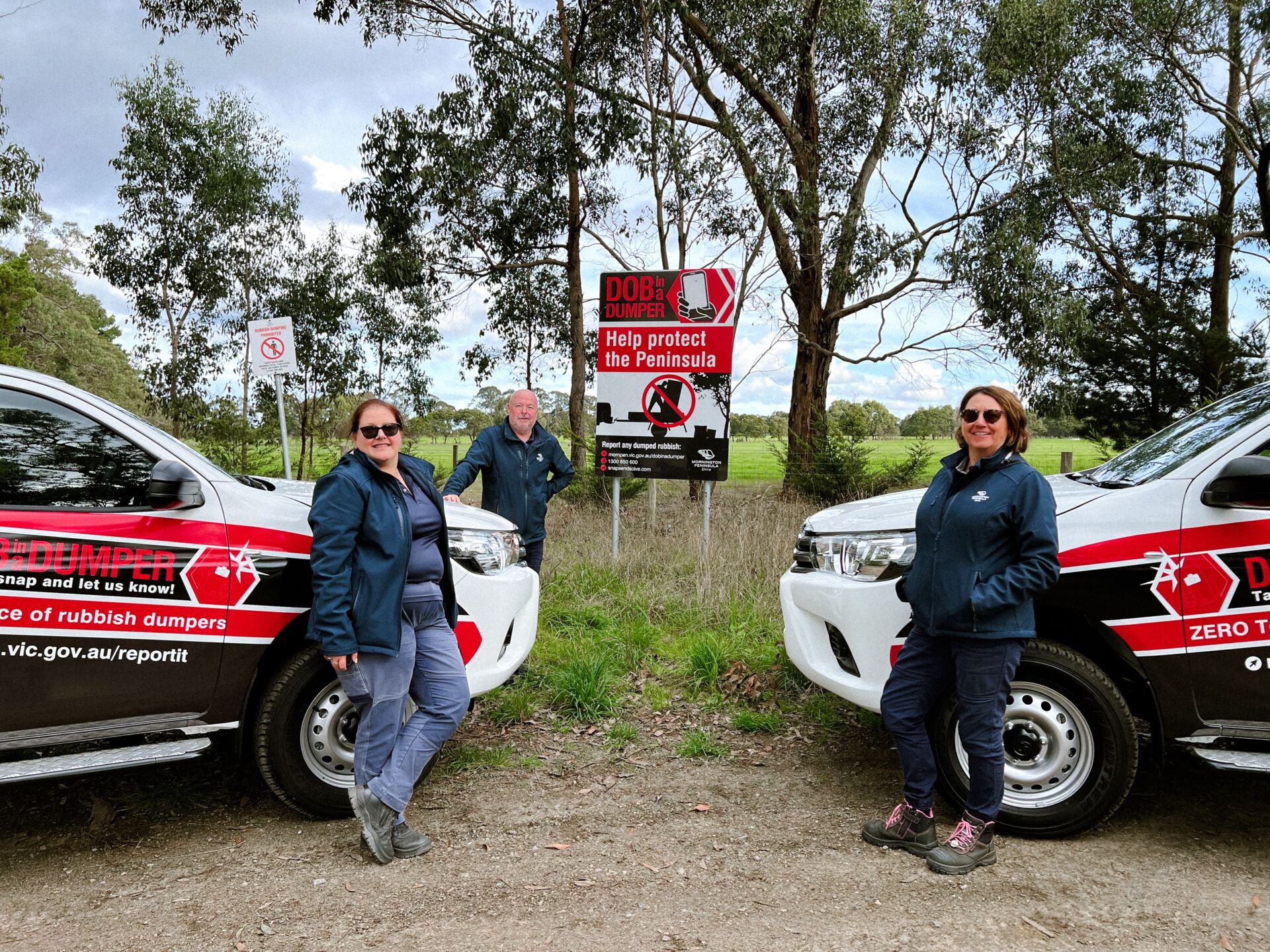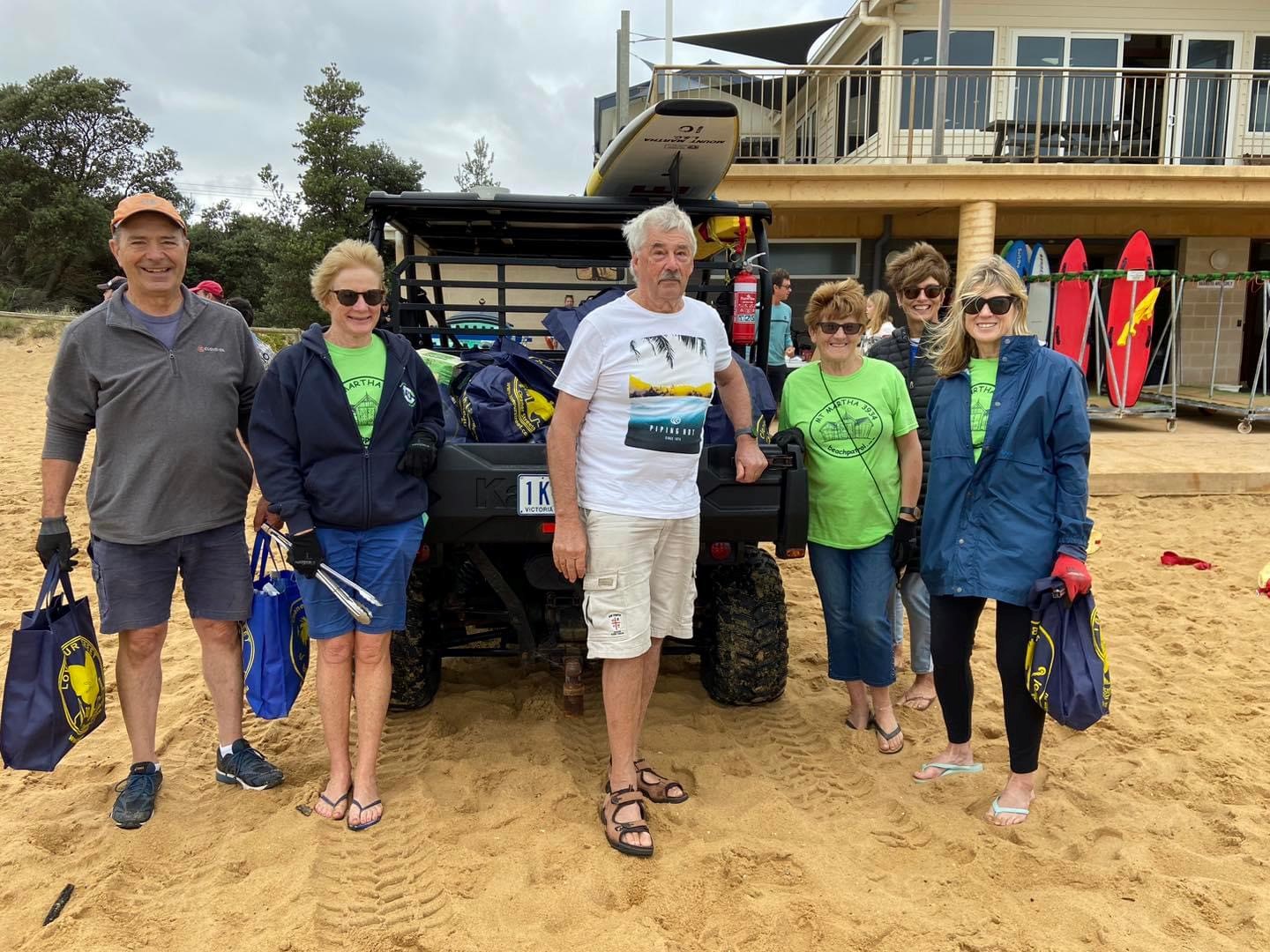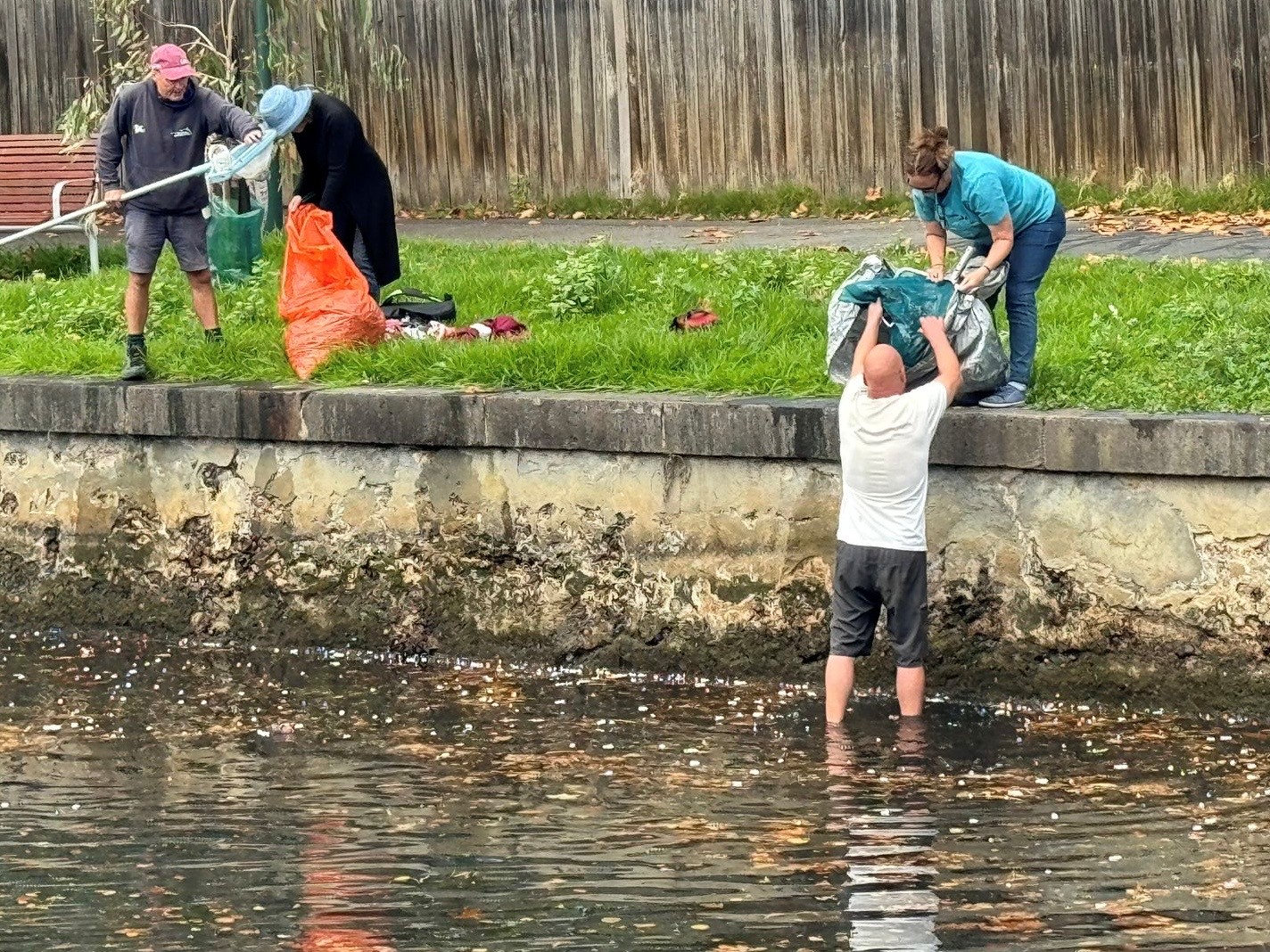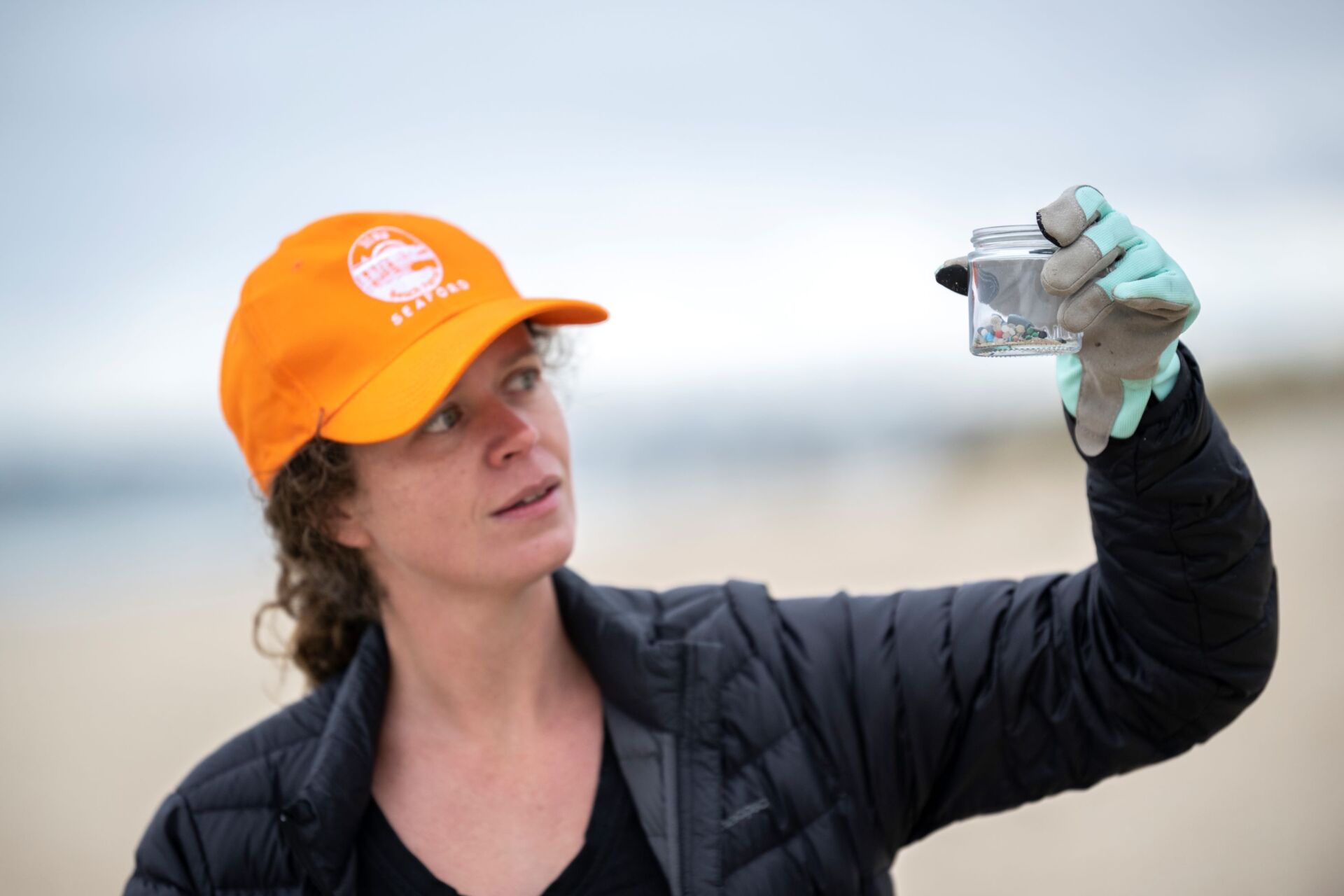2024 Tidy Towns & Cities Finalists:
Litter

Mornington Peninsula Shire
This project tested the effectiveness of mechanical beach rakes in collecting litter and their contribution to macro-plastic pollution on Port Phillip beaches that undergo mechanical raking. This project is testament to the power of citizen science and the impact of dedicated advocacy. By systematically documenting and sharing the consequences of mechanical raking, are raising awareness and real, tangible environmental change.
Rosebud – Mornington Peninsula Shire
The Mornington Peninsula Shire’s ‘Dob in a Dumper’ campaign is led by four Litter Prevention Officers who enforce the Environment Protection Act 2017 and local laws. Using an intelligence-based approach, the team addresses waste and littering through investigations, enforcement, and education. They collaborate with community stakeholders, government agencies, and environmental groups to enhance communication, education, and enforcement.
Mount Martha – Mornington Peninsula Shire
Volunteers meet monthly to collect litter from Mount Martha Beach, demonstrating the power of community action. They also record data on litter types, helping to identify and address problem items. These events foster community connection and positive action while contributing valuable information to address litter issues.

City of Port Phillip
ECAT combats plastic pollution in Port Phillip Bay, highlighting the 100 tons entering annually, including one ton from Elwood Canal. Their petition has over a thousand signatures, with it they push for better litter traps and stronger cross agency collaboration, setting an example for all bay municipalities.
City of Wyndham
Since 2015, the Werribee River Association has mobilized community clean-up groups to address litter, educate the public, and drive change. This initiative includes partnerships, data collection, capacity building, volunteer support, and advocacy. It builds on past projects and addresses concerns about water quality and platypus safety.
